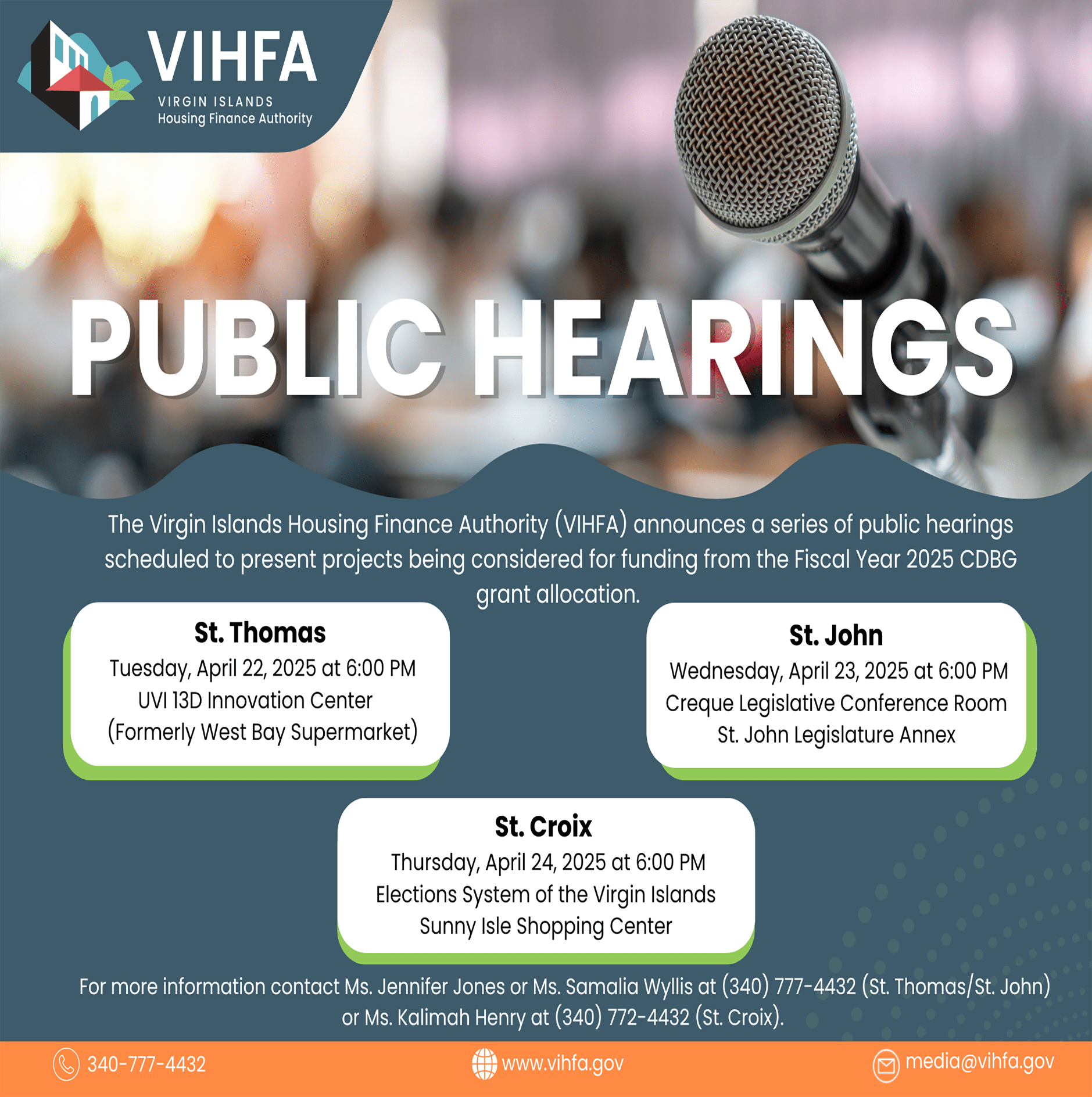
Gov. Albert Bryan Jr. proposed setting the U.S. Virgin Islands 2025 budget at more than $1.44 billion, officials said Friday.
The budget reflects gross revenue collections of roughly $1.08 billion, which translates to a net revenue of $897,047,415 after tax refunds, infrastructure subsidies, debt services, or amounts owed to other governmental entities are deducted. Money drawn from the General Fund would reduce by more than $77 million compared to Fiscal Year 2024 as several sizable one-time, non-recurring government obligations were eliminated, said Office of Management and Budget’s Director Jenifer C. O’Neal.
The total budget includes $896,803,010 from the General Fund, $416,839,994 from federal funds, $97,949,177 from other appropriated funds, and $28,970,041 from other non-appropriated funds, according to OMB.
O’Neal said the $77 million difference was attributable to retroactive wages and small projects.
“By decreasing government spending by more than three-quarters of a million dollars, the financial team plans to build vital cash reserves that will allow the government to nimbly meet any unforeseen challenges that may yet arise. In addition, all revenues included in the budget are projections based on a number of factors, including the rebuilding of schools and other major projects. If those projected actions don’t materialize, it will result in lower cash. So in essence, there is no $77 million dollars sitting anywhere waiting to be used,” she wrote to the Source. “We are instead being cautious and as a result have lowered the projected government expenditure.”
In his introduction to the report, Bryan said the budget expenditure reduction — from $974,062,924 in FY 2024 to $896,803,010 in Fiscal Year 2025 — was roughly an 8 percent reduction.
“However, this budget still provides adequate funding for all essential government obligations and once again includes $5 million from the Transportation Trust Fund earmarked exclusively for local road repairs and a $5 million dollar contribution to the Budget Stabilization Fund,” the governor said. “While we have reduced the proposed expenditures in the upcoming fiscal year, we remain optimistic about the strength of revenue collections.”
He said the USVI can expect increased revenue collections from four of the five major categories: personal income tax, corporate income tax, gross receipts tax, and excise tax. Only real property taxes were predicted to decrease, likely by 1 percent.
The budget reflects an expected corporate and residential construction boom, according to a written statement from OMB. The territory also predicts strong growth in tourism driven by territory-wide cruise ship activity, new hotel construction, and private room-renting and vacation villas.
The executive budget was sent to the Legislature for review and approval Thursday, O’Neal said. For the first time, the executive budget proposal was also available for review by non-elected officials via an interactive website detailing each individual government agency’s financial plan. The link is here.
The budget website provides exhaustive information on some areas of the Virgin Islands, like its average temperature and territorial seal. Elsewhere it comes up short, such as what falls under a $46,352,927 appropriation for “Miscellaneous.”
In the new budget, the Education Department would see an increase from $67,704,784 in FY 2024 to $170,084,508 in 2025. The Health Department would see a $1.3 million dip in funding to $26,060,486, while Juan F. Luis Hospital and Schneider Regional Medical Center would both see $1 million increases to $31,250,000 and $32,750,000, respectively.
Lots of weight in the proposed budget dropped from the Finance Department itself, which dropped more than $9 million to $13,951,708.
The Senate’s powerful Committee on Budget, Appropriations, and Finance plans to look at the executive budget next week.










